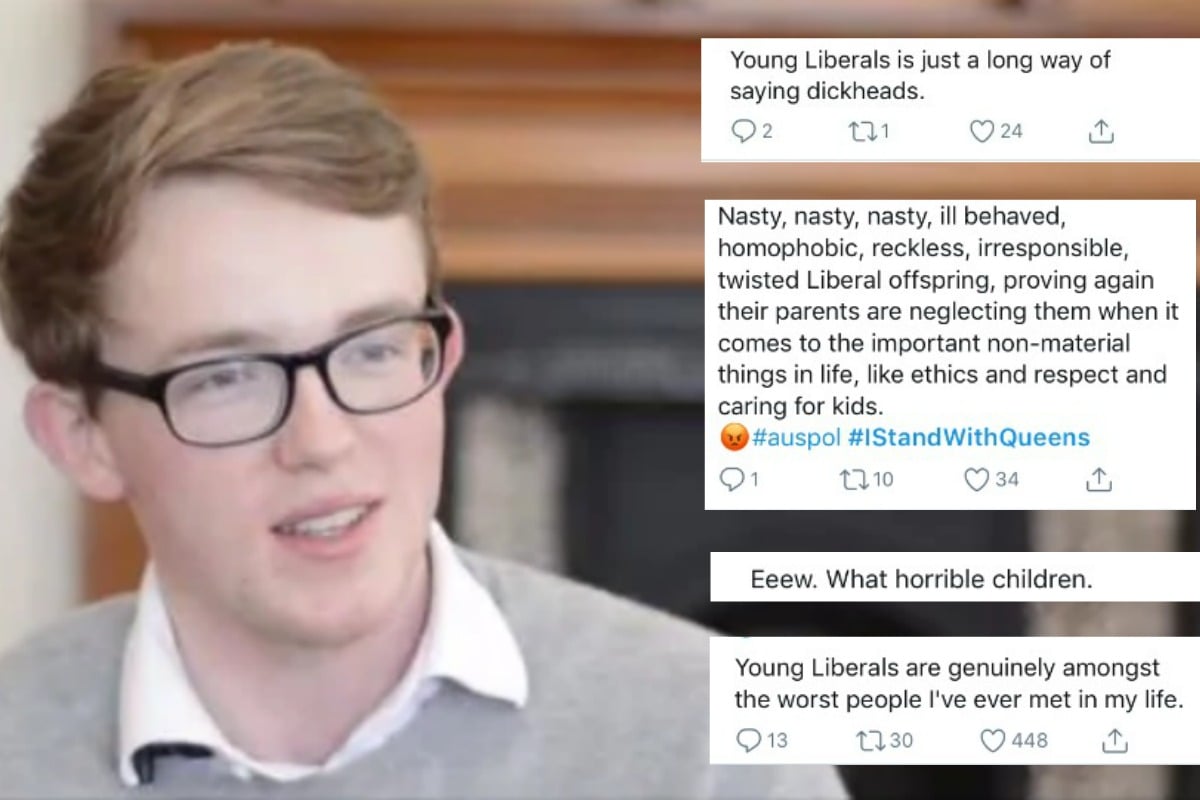
Twitter did not kill Wilson Gavin. But it’s a hellscape nonetheless.
On Sunday, 21-year-old Gavin led a protest at a drag queen storytime event in a Brisbane library. Along with a group from the University of Queensland’s Liberal National Club, Gavin loudly chanted, “Drag queens are not for kids,” in the face of one of the performers.
A video featuring Gavin as well as other members of the group surfaced on social media on Sunday evening. By Monday morning, Gavin was dead.
We do not know what took place in the private life of that young man on Sunday night. But we do have a sense of what took place in public.
On Twitter, where the video quickly became the top trending topic in the country, the protesters were widely referred to as “the Hitler youth”, a “skid mark on society”, “assholes”, “dickheads”, “twisted”, “sick” and “ugly”.
Listen to this week’s Mamamia Out Loud, where we discuss the complex story of Wilson Gavin. Post continues below.
One tweet read, “every one of them looks like they have a chromosome missing,” which was rewarded with a few dozen likes, mostly from people who claimed they were outraged by the protesters lack of love and acceptance.
All Twitter did was flip the script, starting a new chant: “Young Liberals are not for kids”. Critics just managed to reproduce the same intolerance and divisiveness they claimed to be rallying against.
“Young Liberals are among the worst people I’ve met in my life,” one man posted. Later, of course, it would emerge that Gavin was not a Young Liberal at all. But Twitter never lets the truth get in the way of a biting insult.

Top Comments
I have to say young Liberals are a bit of a
worry, so snobby. I think the parents do neglect non material things in their rearing like ethics and respect. My father was a high school principal and he used to say they are taught to be rude politely. They can be quite obnoxious with a lot of hide.